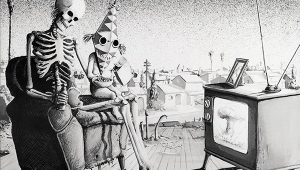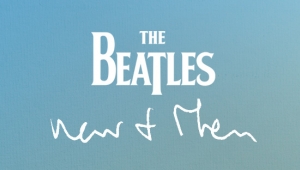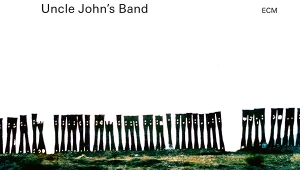| Columns Retired Columns & Blogs |
Leslie Ann Jones: Recording's Future Now
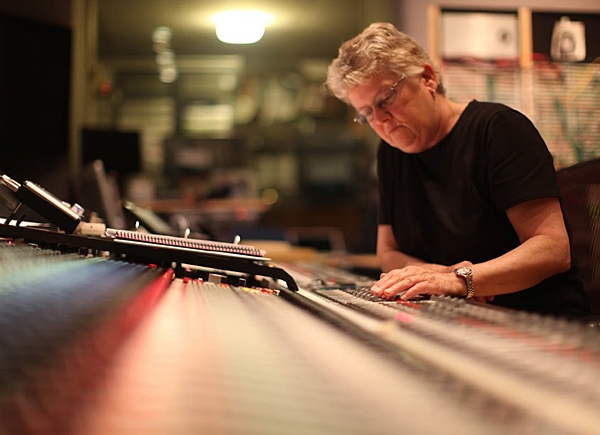
As she moves quietly across the huge scoring stage at Skywalker Studios toward the large, comfortable control room that sits behind glass, it's obvious that Leslie Ann Jones is in charge. She wears no badge that proclaims her authority, although her professional title is impressive: "Director of Music and Scoring, Music and Scoring Recording Engineer and Mixer" (footnote 1). Nor does she speak in a large voice or hit you over the head with her five Grammy awards and four Grammy nominations. But when she turns from watching the 80' × 60' × 30' scoring stage, which has the lowest noise floor of any studio of its size, to question the identities of two women she's never seen before, her voice is clear, calm, and non-threatening, and she displays absolute comfort with authority.
Footnote 1: A scoring engineer is a sound engineer who records and mixes music to be synced with visual media.
"I've been working closely with clients for almost 40 years," she told me. "I always had to make sure that things were okay for the project I was working on, whether I was the assistant engineer, the main engineer, or just helping with setup. You learn a certain amount of self-direction, but you also learn communication skills. You cannot sit in that chair if you have issues about taking control.
"To me and my staff on the scoring stage, it's all about the music. It's not really about what is the best mike to choose. It's about what the music dictates. Maybe my understanding and approach come from growing up with a respect for great musicians. Respect for the people you're working with doesn't always come with the territory of being a recording engineer or producer. ... I still feel to this day that I'm in somewhat of a subservient role. No matter how many Grammys I have, I'm still at the service of the client who walks in the door and wants to make their music. I need to make sure that they have the best experience possible."
Music is part of Leslie Ann Jones's DNA. She jokingly refers to herself as "a poor white girl from Beverly Hills," but her father was the legendary musical satirist Spike Jones, and her mother was vocalist Helen Grayco.
"A lot of my parents' recording was before I was old enough to tag along," she told me. "But I never remember being interested in sound or recording. When I watched them, I was more interested in the music in general."
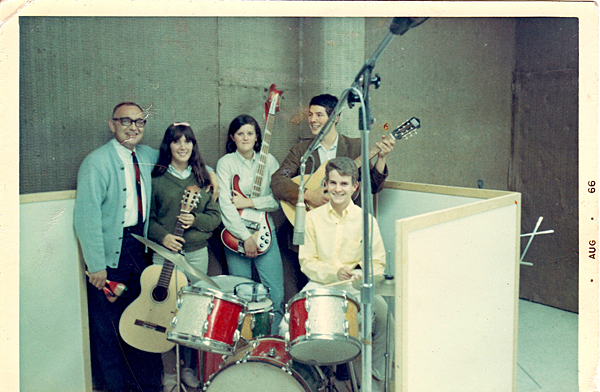
Nobody's Children, Jones's first band, with cousins and brother Spike Jones, Jr., on drums. Leslie Ann is in the middle holding the Rickenbacker bass.
Leslie Ann Jones's introduction to recording and sound came later, in her teenage years, as a guitarist playing in a band. She bought the band a sound system, and after the band broke up, she continued to use it to do sound for friends' club gigs. By her early 20s, she realized she enjoyed impacting musicians and their audience by altering the sound and changing the balance.
Did recording come naturally to her? "I don't know if you ever have an innate sense of what to do, but you do find that you have an inclination towards something," she replied. "I knew I could never be the kind of guitar player I wanted to be, so I was very lucky that even though I knew nothing about electronics, I started mixing sound. I pooled my system with a couple of friends who were also live sound mixers; together, we started a PA company. Then I began working for ABC Records in publicity and artist relations. ... They had a recording studio, and I thought I really should learn something more about recording engineering because I wanted to be a record producer or manager. So I went to the studio and asked for a job. They agreed to hire me in 1975, and that was that."
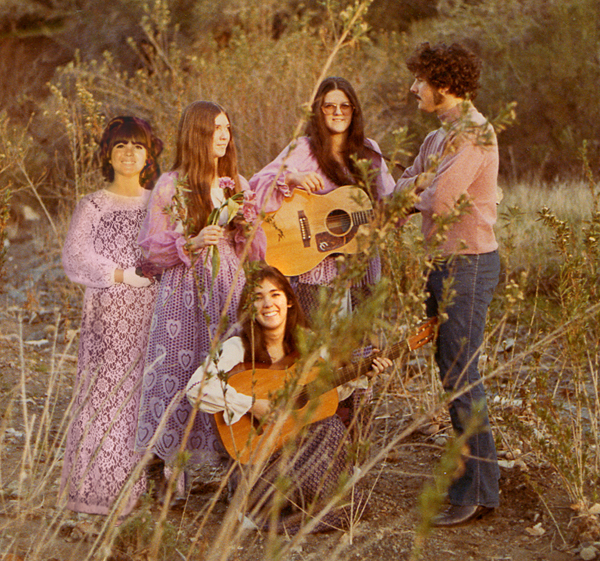
Nobody's Children morphed into Canticle, which, Jones said, "signed a lot of recording contracts and had good interest. Made some good recordings with a Who's Who of rhythm-section players, but nothing was ever released." Leslie Ann is standing, holding a guitar.
When Jones started in the business, she didn't know any women who were doing what she wanted to do. She knew about the LA Women in Music group, which met monthly, but it was composed mainly of women who worked for record companies: Few were engineers, and those who were were classical music editing engineers; she knew of none who were recording or balance engineers, who worked out front in the studio.
Consequently, all of Jones's role models and mentors were men. Many people assumed that "Leslie Jones" was a man, so she started using "Ann" as her middle name so that when her name appeared on recording credits, her gender would be apparent.
When Phil Kaye hired her at ABC, he acknowledged he'd have to see how the guys felt about having a woman in the studio. The studio already had a female mastering engineer, Lois Walker, but mastering engineers usually dealt with one client at a time; they don't work in a room with 20 guys. One time, the wife of a single male client called the studio, heard Jones's voice, and declared that she didn't want any women in the studio with her husband. Other than that, things went smoothly.
"The one part of myself I reined in was telling people who my parents were. I never really thought much about the gender thing. I knew what I was doing was uncommon for women, to say the least, but I also knew that I didn't know everything. When I started mixing PA, I knew nothing about the specs, so I would read hi-fi magazines. I would read about amplifiers and preamplifiers so I could learn about signal-to-noise and distortion, frequency response, and bandwidth, because those were all terms commonly used for recording equipment. And the only way I could learn that was by reading reviews in High Fidelity and Stereo Review, because there were no recording magazines—not even pro magazines.
"Once I understood those terms, I felt I could go into a store with some knowledge. I didn't pretend that I knew what I was talking about when I didn't, but I knew what the specs meant. Maybe it was because of gender or the way I was brought up, but I learned what I needed to learn to do a good job. I learned how to ask for help when I needed it and didn't think asking for help made me seem as though I was less capable. In fact, I think the people around me were invested in my success, because everyone likes to offer their opinions about things. If I went to someone and asked how something worked, they would love nothing more than to tell me. Whether they did it out of the goodness of their hearts or because they just liked to talk didn't matter to me, as long as I got the information."
After ABC in LA, Jones spent six years at the Automatt in San Francisco, working with Elvin Bishop, Peter, Paul & Mary, and others. After a few years working freelance, she spent 1987–1997 at Capitol Studios in Hollywood. Then came the move to the spacious, verdant campus of George Lucas's Skywalker Sound in Marin County, where she was hired as "Director of Music Recording and Scoring." Her first Grammy nomination followed six years later. Today, because Skywalker is so spacious, 70% of her work involves classical; the rest is jazz and pop.
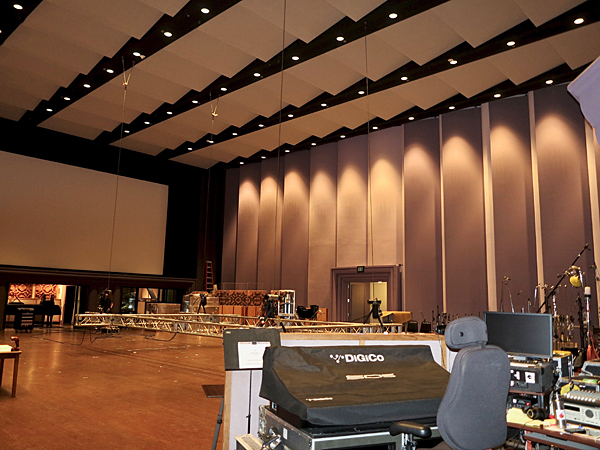
The vast recording stage at Skywalker Studios.
Her approach
Jones deals with a wide variety of clients including some who don't understand the basics of making a record. Aware of the ego minefield a woman in charge may walk across when she attempts to impart knowledge to men, she quickly learned how to avoid making anyone feel inadequate.
"I'm not interested in marking my territory or keeping people out of my space, and I don't think most women who are successful are, either," she said. "So I've learned to say, 'I wonder if the intonation on that note could be a little bit better. What do you think?' You say, 'Does this part bother you?' or 'Are you okay with this?' or 'Do you mind if we get a second take, because we don't have a safety?' It helps them understand the process.
"Some people think they can record 60 minutes in three hours, but that isn't going to happen. I have to explain why people need producers and engineers and why nothing takes five minutes. Microphones are like microscopes, and they pick up all the good and bad of everything you do.
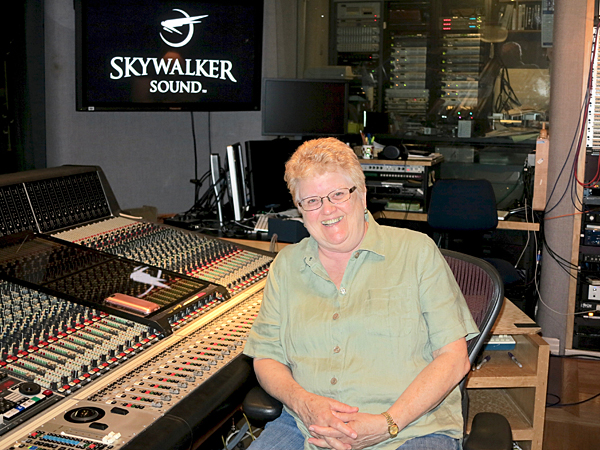
"I spend a lot of time educating people on recording, digital distribution, streaming, and all the different sites that are available to them, because it's so hard to sell product these days. I tell people that even if all they want to issue is a CD—everyone is still vested in making a physical CD that they can sell at concerts—I will record and mix in 24/96 at a minimum and give them a file that, if they can't sell on HDtracks, they can still upload and sell on Bandcamp.
"For recording, mixing, and archiving, higher [bit depth/sampling frequency] is better because anything you do after the original recording will be better. If I don't start with the best I can, somebody with earbuds who is streaming isn't going to hear anything good. In addition, when David Harrington and the Kronos Quartet walk in, they won't be able to hear their parts properly if the balance isn't right or all the fidelity isn't there. They're going to judge how well they're playing by what they're hearing through the monitors and headphones.
Footnote 1: A scoring engineer is a sound engineer who records and mixes music to be synced with visual media.
- Log in or register to post comments








